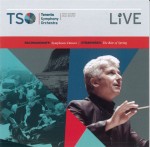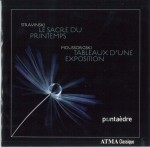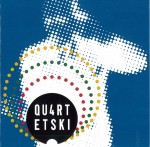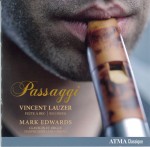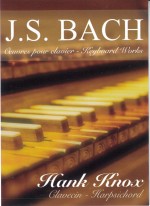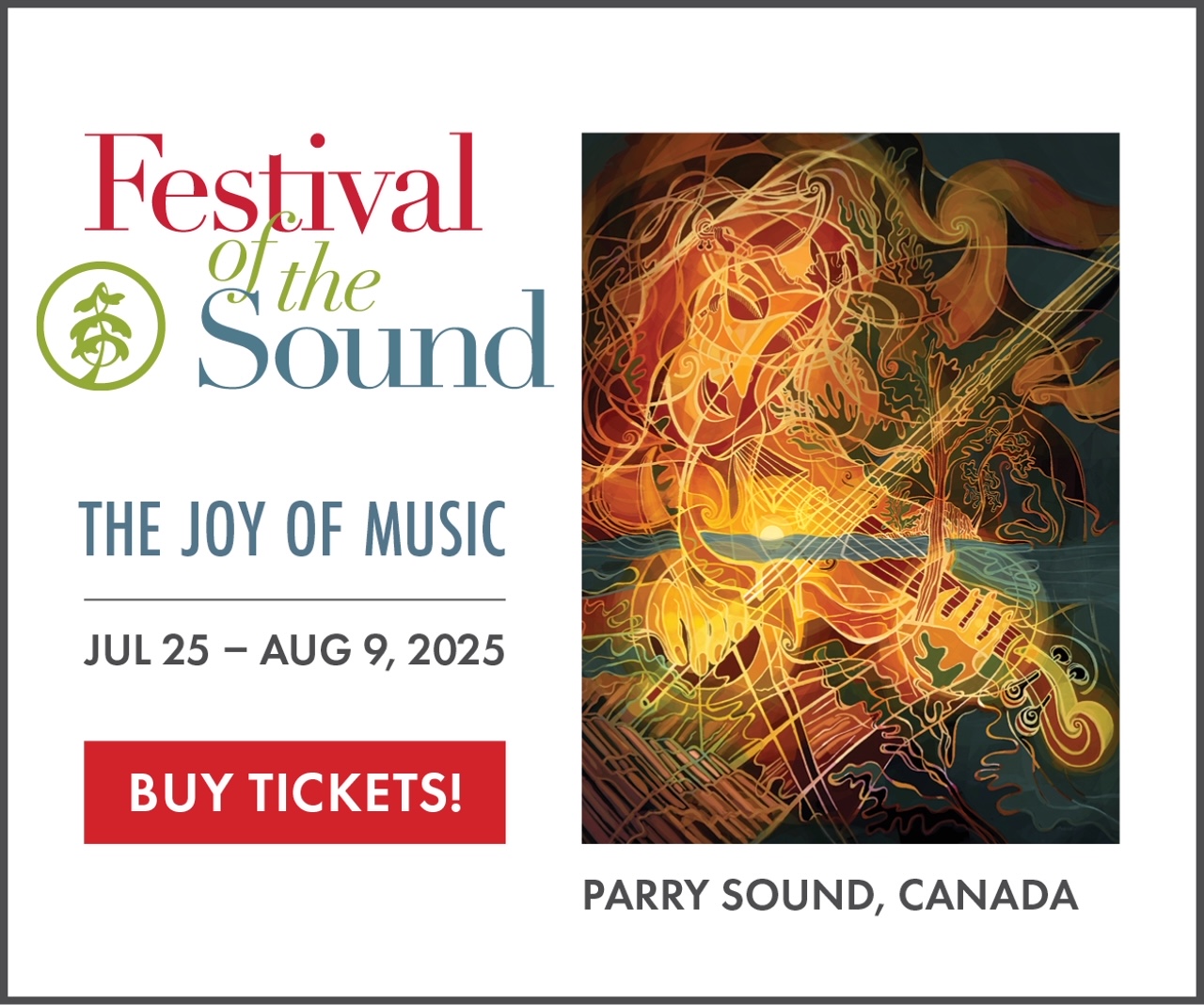Two Russian violin concertos written within four years of each other by composers who had both left their native country for political reasons are featured on the new CD Prokofiev and Stravinsky, with Patricia Kopatchinskaja and the London Philharmonic Orchestra under Vladimir Jurowski (naïve V 5352).
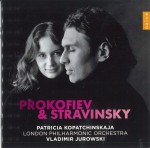 Stravinsky’s Concerto in D was written in 1931; it takes more than just its individual movement titles from the Baroque era, and is in the composer’s neoclassical style. It’s probably heard less frequently than the Prokofiev, and with its prickly nature seems to be slightly less approachable. Kopatchinskaja, though, is a wonderful interpreter, capturing the strident nature of the music while fully illustrating that this is not a work lacking in colour and warmth.
Stravinsky’s Concerto in D was written in 1931; it takes more than just its individual movement titles from the Baroque era, and is in the composer’s neoclassical style. It’s probably heard less frequently than the Prokofiev, and with its prickly nature seems to be slightly less approachable. Kopatchinskaja, though, is a wonderful interpreter, capturing the strident nature of the music while fully illustrating that this is not a work lacking in colour and warmth.
The concerto is followed on the CD by a short uncredited cadenza in which Kopatchinskaja is joined by the LPO’s leader Pieter Schoeman.
Prokofiev’s Concerto No.2 in G minor dates from 1935, when Prokofiev had decided — unlike Stravinsky — to return to the Soviet Union. It’s a beautifully lyrical work, albeit with typical Prokofiev moments of spiky percussiveness, and Kopatchinskaja always finds the perfect balance. The opening of the slow middle movement is particularly striking, with the solo line held back in a quite mysterious way, but with beautiful tonal colour and shading. The orchestral support is excellent on a truly outstanding disc.
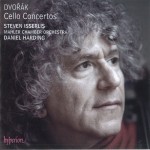 Another excellent concerto CD is Dvořák Cello Concertos, the latest issue from Steven Isserlis and the Mahler Chamber Orchestra under Daniel Harding (Hyperion CDA67917). “Concertos,” you say? — “Surely there is only one?” Well, yes and no. Some 30 years before his celebrated B minor concerto, the young Dvořák had written an A major concerto for the cellist Ludevit Peer, an orchestral colleague of the composer’s in Prague. It was never orchestrated, and the piano score manuscript stayed with Peer when he moved to Germany; Dvořák presumably considered it lost. It is now in the British Library.
Another excellent concerto CD is Dvořák Cello Concertos, the latest issue from Steven Isserlis and the Mahler Chamber Orchestra under Daniel Harding (Hyperion CDA67917). “Concertos,” you say? — “Surely there is only one?” Well, yes and no. Some 30 years before his celebrated B minor concerto, the young Dvořák had written an A major concerto for the cellist Ludevit Peer, an orchestral colleague of the composer’s in Prague. It was never orchestrated, and the piano score manuscript stayed with Peer when he moved to Germany; Dvořák presumably considered it lost. It is now in the British Library.
There have been two attempts at orchestrating it, the latest in 1975 closely following the manuscript; Isserlis, however, has chosen a 1920s reworking of the concerto’s material by the German composer Günter Raphael, who clearly envisioned the mature Dvořák returning to the work with a critical eye. It’s understandably not in the same class as the B minor concerto, but it does have some lovely moments and a particularly beautiful slow movement. However, given that Dvořák’s original work was virtually rewritten by Raphael, who also provided all of the orchestration, it’s a bit difficult to regard it as anything other than an interesting hybrid. Isserlis plays it beautifully, though, as he does the real concerto on the disc.
There are two interesting additions to the CD. On learning of the death of his sister-in-law and first love, Dvořák rewrote the ending of the concerto to incorporate her favourite of his songs, “Lasst mich allein”; an orchestral version of the song is included here, along with the original ending of the concerto.
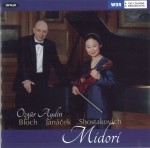 Midori performs Violin Sonatas by Bloch, Janáček and Shostakovich on her latest CD, accompanied by Özgür Aydin (Onyx 4084). During the early years of the 20th century — and especially after the Great War — many composers strove to find a new expressive language, and each of the three represented here developed a highly individual voice. Midori says that the sonatas drew her in, “as they represent a new era in their genre.”
Midori performs Violin Sonatas by Bloch, Janáček and Shostakovich on her latest CD, accompanied by Özgür Aydin (Onyx 4084). During the early years of the 20th century — and especially after the Great War — many composers strove to find a new expressive language, and each of the three represented here developed a highly individual voice. Midori says that the sonatas drew her in, “as they represent a new era in their genre.”
Ernest Bloch’s Sonata No.2 “Poème mystique” is a lovely, rhapsodic single-movement work from 1924, written as a counterpart to his war-influenced first sonata from 1920. Leoš Janáček’s lone violin sonata spanned the years of the Great War and the composer’s sixth decade, the period in which his unrequited love for a young woman led to an outburst of highly personal and idiomatic compositions; started in 1914, it was completed in 1922.
The Shostakovich sonata, written in 1968, is everything you would expect from this most tortured of composers: an ominous slow first movement; an explosively percussive “Allegretto”; and a devastatingly personal closing movement which seems to end in bitterness and resignation, and devoid of any hope.
Midori and Aydin are superb throughout a recital recorded by the German radio station WDR in Cologne, and first broadcast there in 2012.
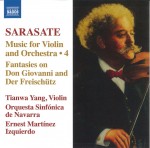 Naxos has issued the fourth and final volume of Sarasate’s Music for Violin and Orchestra (8.572276), featuring the outstanding team of Tianwa Yang and the Orquesta Sinfónica de Navarra under Ernest Martínez Izquierdo. Sarasate was not only one of the greatest players of his or any era, but also a prolific composer for his instrument. What is remarkable, however, is not simply the number of works he produced but their consistently high musical quality. They are, needless to say, extremely difficult, fully exploiting every technical trick in the book while never becoming mere pyrotechnic displays. The range of technical challenges is huge, but Yang once again surmounts them all with apparent ease. Yang sets the bar extremely high right from the opening track, with a pure, bright tone at the start of the Introduction et Tarantelle, Op.43 before the Tarantelle simply explodes in a stunning display of agility and virtuosity.
Naxos has issued the fourth and final volume of Sarasate’s Music for Violin and Orchestra (8.572276), featuring the outstanding team of Tianwa Yang and the Orquesta Sinfónica de Navarra under Ernest Martínez Izquierdo. Sarasate was not only one of the greatest players of his or any era, but also a prolific composer for his instrument. What is remarkable, however, is not simply the number of works he produced but their consistently high musical quality. They are, needless to say, extremely difficult, fully exploiting every technical trick in the book while never becoming mere pyrotechnic displays. The range of technical challenges is huge, but Yang once again surmounts them all with apparent ease. Yang sets the bar extremely high right from the opening track, with a pure, bright tone at the start of the Introduction et Tarantelle, Op.43 before the Tarantelle simply explodes in a stunning display of agility and virtuosity.
The larger works on this disc are the Fantasies on Mozart’s Don Giovanni and on Weber’s Der Freischütz, and the absolutely beautiful Le Rêve. The shorter works are: Jota de San Fermín, Op.36; Jota de Pamplona, Op.50; Airs écossais, Op.34; and L’Esprit follet, Op.48. There are some really lovely touches in the orchestration here, an aspect of Sarasate’s composition that is often overlooked and under-appreciated.
Yang’s playing is absolutely top-notch throughout, with some outstanding double-stopping and immaculate bowing. The booklet notes tell us that Sarasate was noted for “the purity and beauty of his tone, perfection of technique and musical command.” That’s also just about a perfect description of Yang’s playing on this outstanding CD.
The orchestral support is again of the highest calibre, and stylistically perfect – hardly a surprise, as this is the orchestra founded by Sarasate himself in his home town of Pamplona in 1879. Yang’s Naxos series of Sarasate’s Music for Violin and Piano, currently at three volumes, is apparently due for completion in 2014. It will surely round out one of the best series of complete violin works currently available.
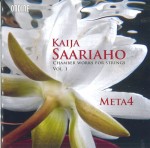 Another new Ondine CD features the chamber music of the Finnish composer Kaija Saariaho, who turned 60 last year, on Chamber Works for Strings Vol.1 (ODE 1222-2). The performers are members of the Finnish string quartet META4, pianist Anna Laakso and Marko Myöhänen on electronics. The works are described as a broad cross-section of Saariaho’s writing for strings and her various approaches to this group of instruments, and the compositional years range from 1987 to 2010. The two works for violin and piano are the most recent: Tocar is from 2010, and Calices, a three-movement work close to a sonata in feel, is from 2009.
Another new Ondine CD features the chamber music of the Finnish composer Kaija Saariaho, who turned 60 last year, on Chamber Works for Strings Vol.1 (ODE 1222-2). The performers are members of the Finnish string quartet META4, pianist Anna Laakso and Marko Myöhänen on electronics. The works are described as a broad cross-section of Saariaho’s writing for strings and her various approaches to this group of instruments, and the compositional years range from 1987 to 2010. The two works for violin and piano are the most recent: Tocar is from 2010, and Calices, a three-movement work close to a sonata in feel, is from 2009.
The two solo works – Nocturne for violin (1994) and Spins and Spells for cello (1997) – are both quite sombre, effective pieces, with extensive and imaginative use of harmonics. The violin piece was written at very short notice for a memorial concert one week after the death of the Polish composer Witold Lutosławski; the cello piece was the compulsory competition work at the Rostropovich Cello Competition in Paris. Vent nocturne for viola and electronics (2006) has an electronic contribution that is mostly the sounds of breathing and wind. Nymphéa for string quartet and live electronics (1987) is the longest piece on the disc, and also the earliest, although it doesn’t sound like it; it’s certainly the most challenging work on the CD on first hearing. It was written for the Kronos Quartet, so it should come as no surprise to read that the electronic sound processing “extends the scope of expression far beyond that of a traditional string quartet.” Indeed, the extreme sounds that the string players are required to produce seem to be part of the electronic score at times.
The technical level of the playing throughout the CD seems to be extremely high, and while it’s always difficult to tell exactly how good the interpretations are when you listen to works of this nature for the first time, the booklet portrait of the composer with the META4 quartet members suggests that we are certainly in good hands.
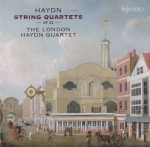 In the past six years or so the London Haydn Quartet has been making people sit up and listen with its “historically informed” performances of the Haydn string quartets, and their recent 2-CD set of the six String Quartets Op.33 on the Hyperion label (CDA67955) makes it easy to understand why. Previous releases of 2-CD sets of the Op.9, Op.17 and Op.20 quartets drew absolutely rave reviews from journals such as The Strad, The Times, Gramophone and other music magazines, and much was made of the fact that the group plays so perfectly on gut strings, usually an invitation to intonation problems. Certainly the sound is somewhat softer and sweeter than you might expect, but that shouldn’t for a moment imply any lack of strength – these performances are simply bursting with life. The dynamics are terrific, and the articulation and the ensemble playing quite astonishing, especially in the dazzling “Presto” movements. And yes, the intonation is faultless.
In the past six years or so the London Haydn Quartet has been making people sit up and listen with its “historically informed” performances of the Haydn string quartets, and their recent 2-CD set of the six String Quartets Op.33 on the Hyperion label (CDA67955) makes it easy to understand why. Previous releases of 2-CD sets of the Op.9, Op.17 and Op.20 quartets drew absolutely rave reviews from journals such as The Strad, The Times, Gramophone and other music magazines, and much was made of the fact that the group plays so perfectly on gut strings, usually an invitation to intonation problems. Certainly the sound is somewhat softer and sweeter than you might expect, but that shouldn’t for a moment imply any lack of strength – these performances are simply bursting with life. The dynamics are terrific, and the articulation and the ensemble playing quite astonishing, especially in the dazzling “Presto” movements. And yes, the intonation is faultless.
Classic FM magazine called the 2007 Op.9 set “Without a doubt one of the all-time great Haydn quartet recordings…” and it would appear that the standard is in no danger of falling as this remarkable series of recordings continues.
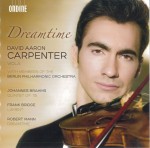 David Aaron Carpenter is back with another CD of viola music on Dreamtime, with members of the Berlin Philharmonic Orchestra (Ondine ODE 1246-2). The music is by Brahms, Bridge and Robert Mann, but unfortunately the major work on the disc is something of a disappointment. Although I’ve long been aware of the viola transcriptions of the Brahms clarinet sonatas, I didn’t realize that there was also a viola version – prepared by Brahms himself – of the Clarinet Quintet in B minor, Op.115. It appears to have been more a straight substitution of viola for clarinet than a true transcription, as the two instruments essentially share the same range – and therein lies the problem. The clarinet part is intricately woven into and around the string writing in the original version, but its sound qualities – the warmth of the lower chalumeau register and the plaintive higher register – always allow it to stand out. Replace it with a viola, however, and the very qualities that make the clarinet an integral part of the work are mostly lost: what you now have is essentially a string quintet with two violas, and what was the solo clarinet part becomes all too frequently buried in the general string writing. At times it is simply not possible to tell how well Carpenter is playing, because you just can’t tell which voice is his. The work still has some truly beautiful moments in this version, but it simply can’t touch the original. Bernhard Hartog and Rüdiger Liebermann are the violinists; Walter Küssner the violist; Stephan Koncz the cellist.
David Aaron Carpenter is back with another CD of viola music on Dreamtime, with members of the Berlin Philharmonic Orchestra (Ondine ODE 1246-2). The music is by Brahms, Bridge and Robert Mann, but unfortunately the major work on the disc is something of a disappointment. Although I’ve long been aware of the viola transcriptions of the Brahms clarinet sonatas, I didn’t realize that there was also a viola version – prepared by Brahms himself – of the Clarinet Quintet in B minor, Op.115. It appears to have been more a straight substitution of viola for clarinet than a true transcription, as the two instruments essentially share the same range – and therein lies the problem. The clarinet part is intricately woven into and around the string writing in the original version, but its sound qualities – the warmth of the lower chalumeau register and the plaintive higher register – always allow it to stand out. Replace it with a viola, however, and the very qualities that make the clarinet an integral part of the work are mostly lost: what you now have is essentially a string quintet with two violas, and what was the solo clarinet part becomes all too frequently buried in the general string writing. At times it is simply not possible to tell how well Carpenter is playing, because you just can’t tell which voice is his. The work still has some truly beautiful moments in this version, but it simply can’t touch the original. Bernhard Hartog and Rüdiger Liebermann are the violinists; Walter Küssner the violist; Stephan Koncz the cellist.
Two short pieces – less than 15 minutes combined – complete the CD. Küssner joins Carpenter for the Lament for Two Violas by Frank Bridge. Bridge wrote the work in 1912 to perform with Lionel Tertis, but it was not a success; in fact, the somewhat sparse booklet notes tell us (somewhat puzzlingly) that there wasn’t even a published performing edition until “another violist-composer, Paul Hindemith, prepared his own version 68 years later” – by which time Hindemith had been dead for 17 years! It’s a very careless error: the edition was actually edited by Paul Hindmarsh, whose Thematic Catalogue of Bridge’s music has become the standard reference work on the composer. At least the track listing gets it right.
The final track is the album’s title track: Dreamtime for solo viola by Robert Mann, the founder and former first violinist of the Juilliard String Quartet. Originally written in the early 1980s as a solo violin piece for Itzhak Perlman, it’s a two-part work with a “Slow Rubato” section followed by a quite discordant “Presto Tarantella.”
The Brahms and Bridge works were apparently recorded in concert in Berlin this past February, but there is no trace of audience noise. The sound quality is excellent throughout.
 I’m normally a bit wary of compilation CD sets, as they tend to highlight works rather than present them in full, but the 2-CD set Portrait (outhere music/Zig-Zag Territoires ZZT325) by the French Baroque violinist Amandine Beyer is a welcome – and simply terrific – exception. The works included here, selected from nine of her CDs, were recorded between 2005 and 2013, mostly with the musicians from her own outstanding group Gli Incogniti. Disc 1 features short works by Nicola Matteis, De Visée’s Suite for Theorbo and Violin, sonatas by Jean-Féry Rebel and C. P. E. Bach, and the Partita No.2 in D minor of J.S. Bach. Disc 2 has Corelli’s Concerto grosso in G minor, Op.6 No.8, Bach’s E major Violin Concerto and three concertos by Vivaldi, including “Winter” from The Four Seasons. The latter is a dazzling performance, with a very distinctive and quite different slow movement.
I’m normally a bit wary of compilation CD sets, as they tend to highlight works rather than present them in full, but the 2-CD set Portrait (outhere music/Zig-Zag Territoires ZZT325) by the French Baroque violinist Amandine Beyer is a welcome – and simply terrific – exception. The works included here, selected from nine of her CDs, were recorded between 2005 and 2013, mostly with the musicians from her own outstanding group Gli Incogniti. Disc 1 features short works by Nicola Matteis, De Visée’s Suite for Theorbo and Violin, sonatas by Jean-Féry Rebel and C. P. E. Bach, and the Partita No.2 in D minor of J.S. Bach. Disc 2 has Corelli’s Concerto grosso in G minor, Op.6 No.8, Bach’s E major Violin Concerto and three concertos by Vivaldi, including “Winter” from The Four Seasons. The latter is a dazzling performance, with a very distinctive and quite different slow movement.
There is an exceptional fluency, warmth, character and sense of freedom in Beyer’s playing, and something quite magical and captivating about her performances. If you haven’t heard her, then you’ve really been missing something; this eminently satisfying set at a really attractive price is the perfect opportunity to put that right.
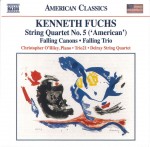 A new Naxos release in its American Classics series features the String Quartet No. 5 (“American”) of Kenneth Fuchs performed by the Delray String Quartet (8.559733), together with Falling Canons (seven movements for piano) with Christopher O’Riley as soloist, and Falling Trio (in one movement), a piano trio performed here by Trio21. All three works are thematically related in some way to Fuchs’ Falling Man, a work for baritone voice and orchestra based on the post-9/11 novel of the same title by Don DeLillo.
A new Naxos release in its American Classics series features the String Quartet No. 5 (“American”) of Kenneth Fuchs performed by the Delray String Quartet (8.559733), together with Falling Canons (seven movements for piano) with Christopher O’Riley as soloist, and Falling Trio (in one movement), a piano trio performed here by Trio21. All three works are thematically related in some way to Fuchs’ Falling Man, a work for baritone voice and orchestra based on the post-9/11 novel of the same title by Don DeLillo.
The string quartet takes up almost half of the CD, and was commissioned for the Delray ensemble. Like much of Fuchs’ orchestral music it’s a strongly tonal and immediately accessible work, Fuchs noting that it embraces the stylistic influences of the American symphonic school that were reflected in such recent scores as Atlantic Riband and Discover the Wild, both of which were featured on a recording reviewed in this column in October of 2012.
Falling Canons is a highly effective piece consisting of seven canons written at the unison and at intervals of the second, third, fourth, fifth, sixth and seventh, and pitched on each of the seven degrees of a descending C major scale. Falling Trio works in a somewhat similar manner, with a three-part canon followed by a set of seven variations, this time on an ascending series of pitches. Falling Man, incidentally, has recently been recorded by Naxos at the Abbey Road Studios in London, and on its release will be the fourth CD of orchestral music by Fuchs available on the label.
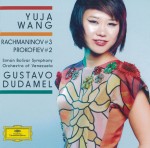 Rachmaninov #3; Prokofiev #2
Rachmaninov #3; Prokofiev #2

